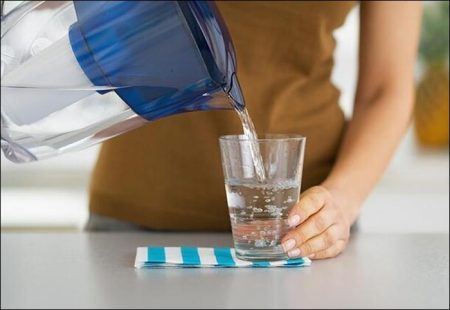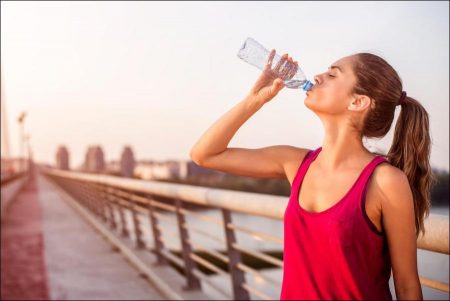Those who do not consume enough liquid in the summer may face the risk of dehydration. Dehydration, defined as the body’s loss of excess fluid or inability to get enough fluid, seriously threatens human life. So women should have 8-10 glasses of liquid consumption in the summer. This should be 12-14 cups for men.
The body’s temperature is balanced against air temperature, breathing faster, sweating and excreting excess heat through urine. Approximately 65 percent of the human body is composed of water and an average daily loss of 2.5 liters of the body. Symptoms of insufficient fluid consumption, fatigue, weakness, darkening of urine color, decrease in the amount of urine, decrease in the frequency of urine, blood pressure, increase in the number of pulses, decrease in sweating, thoughtfulness, dullness in the eyes, headache, dizziness, dry skin, loss of flexibility in the skin, slowing bowel movements, constipation, bad breath, increase in respiratory rate and muscle cramps.
Lack of fluid triggers heart attack
Experts warn that the daily water requirement of an individual weighing 60 kilos is 2-2.5 liters and that the type of liquid consumption in women should be 8-10 cups in women and 12-14 cups in men. With the effect of hot weather in the summer season, salt and electrolyte loss occurs in the form of sweating, the person does not get enough fluid and the risk of heart attack increases, not consuming enough fluid causes blood darkening and clotting palpitations, arrhythmia, blood pressure imbalances and heart failure leads to such tables.
Watch out for the color of your urine
Insufficient fluid consumption leads kidney fatigue. The first signal occurs with urine changes. Kidneys are the center of production of erythropoietin hormone responsible for active vitamin D synthesis and blood production.
Anemia and vitamin D deficiency can be seen in renal failure. Depending on these problems, weakness, fatigue, muscle joint pain, headache, dizziness, low blood pressure may also occur. When the kidneys work slowly, toxins in the body cannot be removed adequately, such as sleep disorders, difficulty falling asleep, and sleep apnea. Again, toxins can not be removed as a result of skin dryness and itching may occur.
Non-disposable toxins change mouth taste, bad breath, loss of appetite and cause weight loss. Shortness of breath is common due to anemia and non-disposable excess fluid. Both side pain, back pain, nausea, vomiting may indicate renal failure. Swelling of the feet and hands may occur due to excess water retention of the body. In addition, the lack of concentration, sexual problems in men, muscle cramps and twitches are seen.
Don’t drink tea, take a shower often
Especially in warm places who make recommendations for vacationers. Experts gave the following advice: “It is better to go to the beach after 16.00 or before 11.00. Because of the loss of fluid through perspiration for a long time in the sun, more liquid should be taken than normal and needed. you can drink herbal teas or milk such as fruit juice, buttermilk, compote, vegetable juices, linden, rosehip etc. Tea and coffee do not replace water, and even support the loss of liquids. other measures.”
Views: 152




